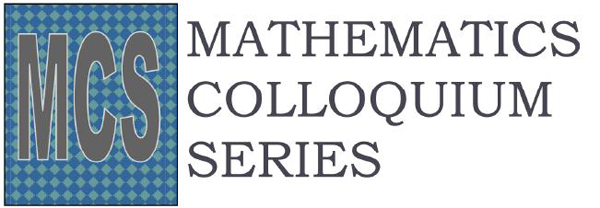 The second talk in the fall 2013 Mathematics Colloquium Series will discuss ways of using mathematical logic to study complex chronic illness. Hosted by NSU’s Farquhar College of Arts and Sciences, the talk is free and all are welcome to attend.
The second talk in the fall 2013 Mathematics Colloquium Series will discuss ways of using mathematical logic to study complex chronic illness. Hosted by NSU’s Farquhar College of Arts and Sciences, the talk is free and all are welcome to attend.
“Using Ternary Logic to Explore Homeostatic Drive in the Perpetuation of Complex Chronic Illness”
Mathematics Colloquium Series
Travis J.A. Craddock, Ph.D., assistant professor at NSU’s Center for Psychological Studies
Wednesday, Oct. 9
Noon–1:00 p.m.
Carl DeSantis Building | Room 1047
About the Research
The hypothalamic-pituitary-adrenal (HPA) axis links the brain, endocrine, and immune systems of the body and serves as a major regulator of the body’s response to stress including emotion, digestion, metabolism, and sensory perception. Dysregulation of the HPA axis has also been associated with numerous chronic diseases, such as Gulf War Illness (GWI) and chronic fatigue syndrome (CFS). While HPA function is inextricably linked with that of its regulatory neighbors, few models account for these all-important interactions, as many of the key parameters needed have yet to be determined experimentally.
This talk extends the common models of the HPA axis by including interaction with sex-hormone regulation and immune response. Craddock will use documented physiological and biochemical data to construct a connectivity network describing these systems for both men and women, and apply a discrete ternary logic to represent the states of the system qualitatively, without the need for kinetic parameters. Results indicate that this extended system can accommodate other naturally occurring persistent states in addition to healthy responses to stress. Two of these alternate resting states align with experimental data describing GWI and CFS subjects. These models encourage the design of robust treatments that might exploit these regulatory regimes.
About the Series
Hosted by NSU’s Division of Math, Science, and Technology, the Mathematics Colloquium Series aims to increase awareness of mathematics’ importance and applications in daily life. The series also gives mathematics faculty members and students the opportunity to discuss independent research and share their passion for the subject.
For more information, contact Vehbi Paksoy, Ph.D., or Iuliana Stanculescu, Ph.D., associate professors at the college.

